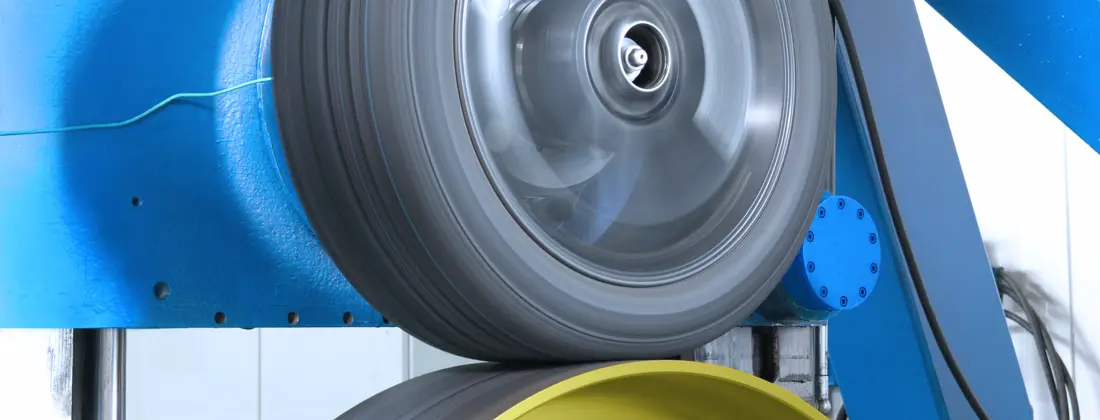ADR 24 Tyre Rolling Resistance and Noise Testing
The ADR (Australian Design Rule) 24/02 is a standard that mandates the measurement of tyre rolling resistance and noise levels. This testing ensures that tyres meet stringent requirements for fuel efficiency, safety, and environmental impact. For automotive manufacturers, compliance with these regulations is critical to maintaining market access in Australia and beyond.
Rolling resistance directly impacts fuel consumption by reducing the energy required to move a vehicle forward. Lower rolling resistance translates into better fuel economy, which is particularly important given global efforts towards more efficient vehicles. Noise levels are also regulated as part of ADR 24/02 due to their effect on driver comfort and road safety.
Compliance with this regulation is essential for manufacturers to ensure that their tyres meet the required standards set by regulatory bodies. Failure to comply can result in significant financial penalties, reputational damage, and potential market exclusion. Thus, it is crucial for quality managers, compliance officers, R&D engineers, and procurement teams to stay updated on these requirements.
In this service, we provide comprehensive testing solutions that help our clients meet the stringent demands of ADR 24/02. Our expertise in tyre testing allows us to offer accurate and reliable results, ensuring that your products comply with all relevant international standards such as ISO 38001, ASTM E695, EN 16275, and IEC 62714.
We use state-of-the-art equipment and methodologies to conduct these tests. Our laboratories are equipped with precision instruments capable of measuring even the slightest variations in tyre performance. This ensures that every test conducted meets the highest standards of accuracy and reliability.
The testing process involves several key steps. Firstly, tyres are carefully prepared according to specific protocols. Then they undergo rigorous rolling resistance tests on specialized machines designed specifically for this purpose. Afterward, noise level measurements are taken using advanced acoustic sensors. Finally, all data collected is analyzed meticulously before being compiled into detailed reports.
Our team of experienced engineers and technicians ensures that each step of the process adheres strictly to ADR 24/02 guidelines. By doing so, we guarantee not only compliance but also provide valuable insights into how your tyres perform under various conditions. This information can be used by R&D teams to improve future product designs.
Understanding the importance of these tests helps explain why they are necessary for any automotive manufacturer operating within or exporting to Australia. Non-compliance could lead not only to legal issues but also consumer dissatisfaction, which can severely impact brand reputation and sales figures.
Scope and Methodology
| Test Parameter | Description |
|---|---|
| Tyre Rolling Resistance | Measurement of the force required to roll a tyre at specified speeds. |
| Noise Levels | Determination of sound intensity emitted by tyres during operation. |
Benefits
Compliance with ADR 24/02 brings numerous benefits beyond mere regulatory adherence. It enhances brand reputation and consumer trust, as customers increasingly value eco-friendly and safe products. Meeting these standards also opens up new markets where stringent regulations exist.
From an operational perspective, ensuring compliance reduces the risk of penalties and legal disputes. Additionally, it allows companies to focus on innovation rather than constantly worrying about regulatory changes. For R&D teams, this means more time can be spent exploring advanced materials and technologies that could further enhance tyre performance.
The data generated from these tests provides valuable feedback for continuous improvement cycles. Manufacturers gain deeper insights into their products' strengths and weaknesses, enabling targeted enhancements in future iterations. This cycle of testing, analysis, and improvement ensures sustained competitiveness in the market place.
Environmental and Sustainability Contributions
- Reduction in fuel consumption leading to lower CO₂ emissions.
- Promotion of quieter roads enhancing overall quality of life for urban dwellers.
- Encouragement towards sustainable manufacturing practices through rigorous testing processes.





